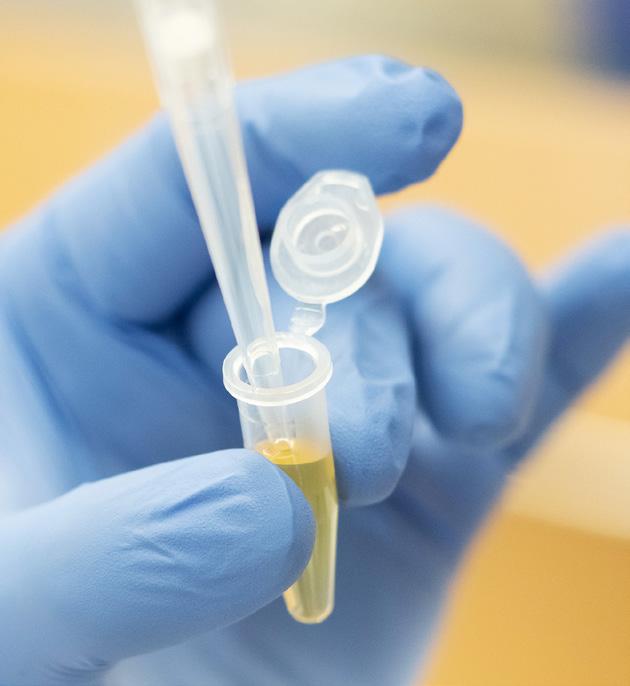
3 minute read
How do you turn $30M into $360M?
WHEN IT LAUNCHED 15 years ago, the Venture Philanthropy Network (VPN)—a group of likeminded families who have long supported translational research at Boston Children’s—was, much like the science it championed, something of an experiment. “The idea was to see under the hood of an organization, to really see how good it was. And when people saw the proof of concept, the hope was that they would be excited and give more money,” says Trust Board Member Matthew Sidman, who helped start vpn with his wife, Lori, in 2009. “We also wanted to bring in other couples, so it wasn’t just a charitable experiment but also a social experiment.”
The group coalesced around a then fledgling idea: the Translational Research Program, or TRP, a hospital effort to advance some of its most exciting bench science into clinical application.
By every metric, the experiment has been a smashing success.
VPN members have partnered with Boston Children’s and the local business community to raise $30 million for the program since the group’s launch. And TRP researchers have used the data and early scientific discovery supported by those donations to draw in an additional $360 million in federal and private foundation grants.
That’s a staggering 12X “return on investment,” Sidman says, but still only accounts for a portion of the TRP’s accomplishments. With support from VPN, the TRP has funded more than 60 investigator-career awards. Those recipients have filed patents in nearly 60% of cases and launched 35 clinical trials.
Along the way, TRP scientists have dramatically improved outcomes for premature infants, built and sold a vaccine development company in a deal worth $3.3 billion, created cell-on-a-chip technology to better find therapies for rare heart diseases and revolutionized the treatment of anterior cruciate ligament (ACL) tears.
More than half of the awardees’ research has resulted in changes in how Boston Children’s—and the world— treats patients.
“What is special about VPN is the community of caring that it has built, and the continued success of VPN stems from the strength of that community and the incredible work being done by the researchers at the hospital,” says Trust Board Member Ted Pappendick, who serves with his wife, Erica, as one of the co-chair families of the group. They also established the Pappendick Family Therapeutic Acceleration Award to support TRP science.
With new members joining the group in recent years, Pappendick says VPN's future is bright, and it remains a unique opportunity for a group of donors to watch their philanthropic impact multiply.










